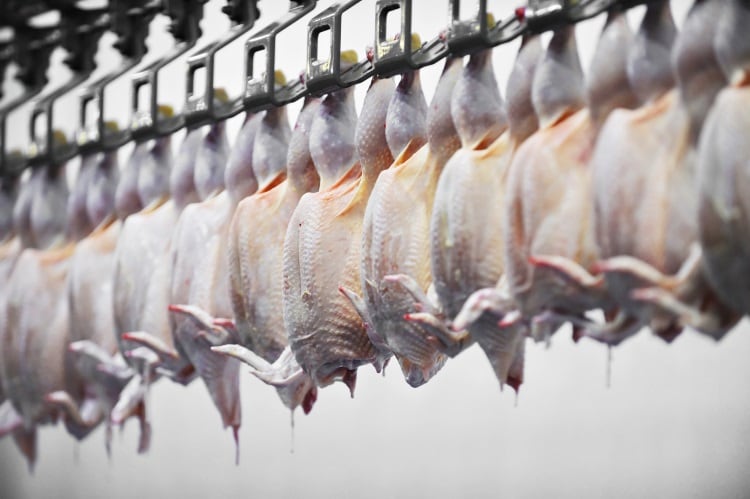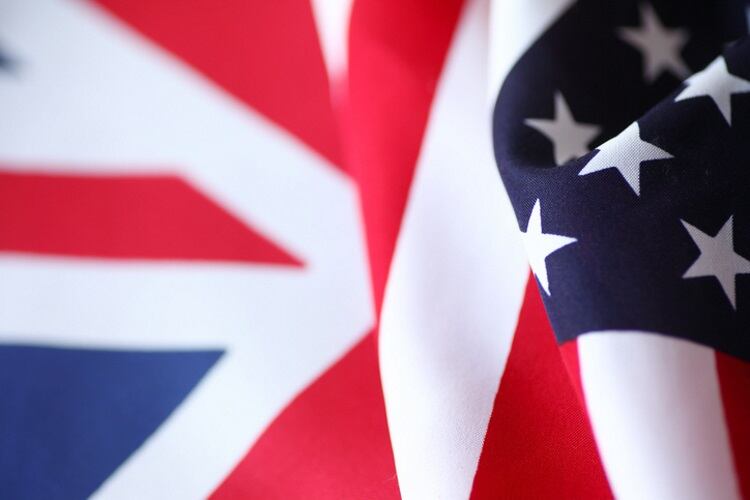In a letter to US Trade Representative Robert Lighthizer, 47 Members of US Congress, led by Arkansas representative Steve Womack, called for the prioritisation of fair market access for “hardworking American poultry producers during upcoming trade negotiations between the US and the UK”.
In the letter, the group outlined trade barriers US producers currently face and called for the inclusion of US poultry products in any new trade agreement.
It said: “As you [Lighthizer] may be aware, as part of the European Union (EU), the UK adhered to the EU’s food safety standards established in 1997 that banned US-exported poultry due to standard antimicrobial washes used in American poultry production. However, with its departure from the EU on January 31, 2020, we are in a position to negotiate an agreement with the UK that resolves this unscientific ban once and for all.”
The members stressed that “US-produced poultry is safe, and inspections throughout the entire poultry production process ensure consumer safety”.
“Antimicrobial spray washes are used in the production process to improve food safety. All rinses, including chlorine, must be approved by the US Department of Agriculture (USDA) and their use is limited to specific amounts. This is just one step in the process – the USDA also inspects all poultry produced in the US. Additionally, only an estimated 10% of the processing plants in the US use chlorine throughout production. Scientific research, including that of the European Food Safety Authority, confirms using chlorine-washed poultry does not pose any human health concerns, nor is it present in the final product. The US food safety system is second to none, and it is built on extensive scientific research to assure safety of the product and the process.”
The letter emphasised the importance of opening a new market such as the UK. “As the second largest exporter of chicken and largest exporter of turkey, the US sends poultry products to more than 120 countries around the world. Adding a new market like the UK will continue the momentum gained by opening markets like China and Japan to our poultry industry. Lifting this ban will set the stage for future agreements, such as with the EU, and reinforce the Administration’s stance that US farmers and ranchers are an integral part of the American economy that should not be left behind.”
Industry praise
The US poultry industry offered praise for the support shown by its politicians.
National Chicken Council president Mike Brown said: “With almost one in five lbs of chicken being exported, a robust and expanding overseas market is extremely important to the economic health and well-being of the US chicken industry. Including US chicken is critical in any new trade agreement with the UK – an agreement that should not be hampered by artificial trade barriers. I want to thank Congressman Womack for his leadership on this issue and for the members who signed the letter for their commitment to expanding US chicken exports.”
President of the National Turkey Federation Joel Brandenberger added: “America’s poultry producers are committed to raising high-quality, nutritious products. We appreciate Rep. Womack’s support of Arkansas turkey producers and processors through his leadership in calling for opening the United Kingdom to imports of US poultry products as part of upcoming trade negotiations. Greater access to export markets for the US turkey industry supports jobs and communities throughout Arkansas.”
The EU has banned imports of products that use the chlorinated chicken process since 1997 however since the UK has begun its exit from the EU, much debate has raged over the potential for allowing chlorine-treated process into the country as part of a trade deal with the US.
“British poultry producers don’t dip their chicken carcase in chemicals as we do not ‘clean up at the end’ or take any short-cuts when it comes to producing food,” he said. “It’s Government’s duty to ensure that production standards of imported food meet British standards as a condition of entry. If food produced to lower standards is allowed to enter the British market, it will create a two-tier food system, in which only the affluent can afford to eat British food grown to British standards. This is unacceptable.
“Losing control of how we feed ourselves as a nation would undermine British food producers at a time when we should be looking to use Brexit as an opportunity to take matters of food security, nutrition, and sustainability into our own hands.”
Meanwhile, speaking on a recent GlobalMeatNews podcast, Tyson Foods group head of poultry Chad Martin said that even though the majority of Tyson plants don’t use the chlorinated chicken process, he believed it to be perfectly safe for food production.



